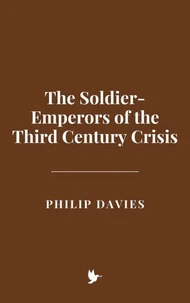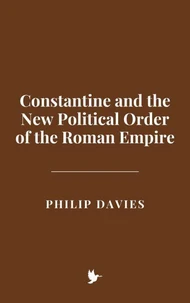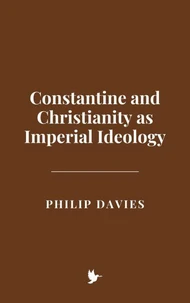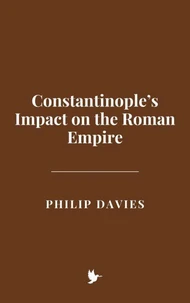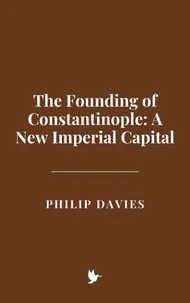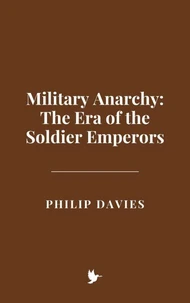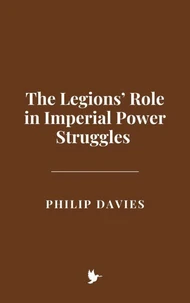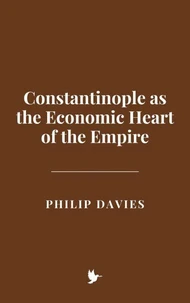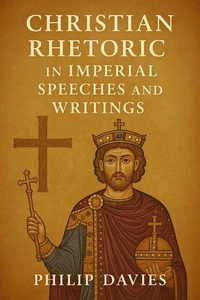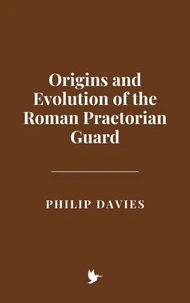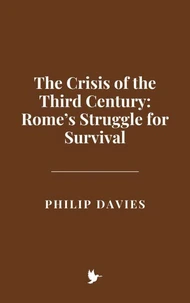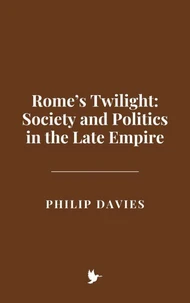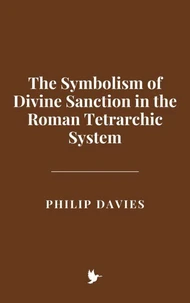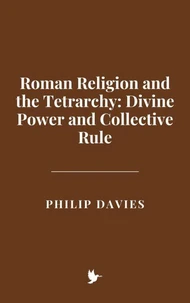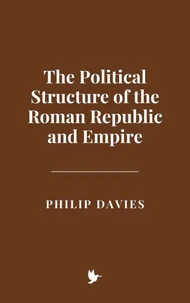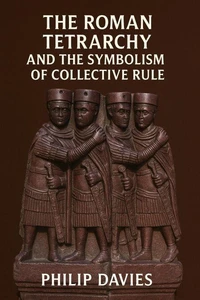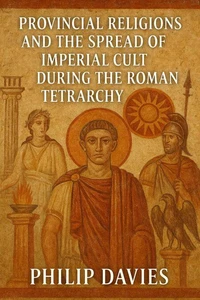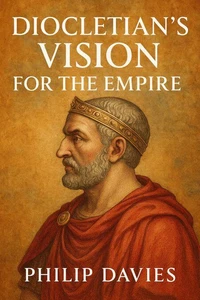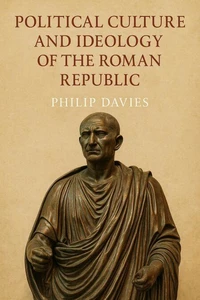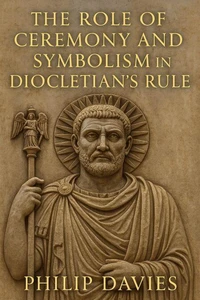Roman Law and Society: Foundations of Western Civilization
Par :Formats :
Disponible dans votre compte client Decitre ou Furet du Nord dès validation de votre commande. Le format ePub est :
- Compatible avec une lecture sur My Vivlio (smartphone, tablette, ordinateur)
- Compatible avec une lecture sur liseuses Vivlio
- Pour les liseuses autres que Vivlio, vous devez utiliser le logiciel Adobe Digital Edition. Non compatible avec la lecture sur les liseuses Kindle, Remarkable et Sony
 , qui est-ce ?
, qui est-ce ?Notre partenaire de plateforme de lecture numérique où vous retrouverez l'ensemble de vos ebooks gratuitement
Pour en savoir plus sur nos ebooks, consultez notre aide en ligne ici
- FormatePub
- ISBN8230433651
- EAN9798230433651
- Date de parution12/04/2025
- Protection num.pas de protection
- Infos supplémentairesepub
- ÉditeurIndependently Published
Résumé
Roman Law and Society: Foundations of Western Civilization by Philip Davies explores the pivotal role Roman law played in shaping the social, political, and economic structures of ancient Rome, and its enduring influence on Western legal systems. From its early beginnings during the Roman Republic to the codification of laws under Emperor Justinian, this book delves into the development of legal principles that not only governed Roman citizens but also integrated diverse peoples across the vast Roman Empire.
Through a detailed examination of Roman property rights, contract law, citizenship, and criminal law, the author highlights how Roman legal innovations laid the groundwork for modern legal traditions, including civil law and international law. By tracing the evolution of Roman law in relation to Roman society, Philip Davies provides a comprehensive understanding of how legal systems can shape and reflect the values of a civilization.
This book serves as a crucial resource for anyone seeking to understand the foundational aspects of Western law and its historical underpinnings.
Through a detailed examination of Roman property rights, contract law, citizenship, and criminal law, the author highlights how Roman legal innovations laid the groundwork for modern legal traditions, including civil law and international law. By tracing the evolution of Roman law in relation to Roman society, Philip Davies provides a comprehensive understanding of how legal systems can shape and reflect the values of a civilization.
This book serves as a crucial resource for anyone seeking to understand the foundational aspects of Western law and its historical underpinnings.
Roman Law and Society: Foundations of Western Civilization by Philip Davies explores the pivotal role Roman law played in shaping the social, political, and economic structures of ancient Rome, and its enduring influence on Western legal systems. From its early beginnings during the Roman Republic to the codification of laws under Emperor Justinian, this book delves into the development of legal principles that not only governed Roman citizens but also integrated diverse peoples across the vast Roman Empire.
Through a detailed examination of Roman property rights, contract law, citizenship, and criminal law, the author highlights how Roman legal innovations laid the groundwork for modern legal traditions, including civil law and international law. By tracing the evolution of Roman law in relation to Roman society, Philip Davies provides a comprehensive understanding of how legal systems can shape and reflect the values of a civilization.
This book serves as a crucial resource for anyone seeking to understand the foundational aspects of Western law and its historical underpinnings.
Through a detailed examination of Roman property rights, contract law, citizenship, and criminal law, the author highlights how Roman legal innovations laid the groundwork for modern legal traditions, including civil law and international law. By tracing the evolution of Roman law in relation to Roman society, Philip Davies provides a comprehensive understanding of how legal systems can shape and reflect the values of a civilization.
This book serves as a crucial resource for anyone seeking to understand the foundational aspects of Western law and its historical underpinnings.


